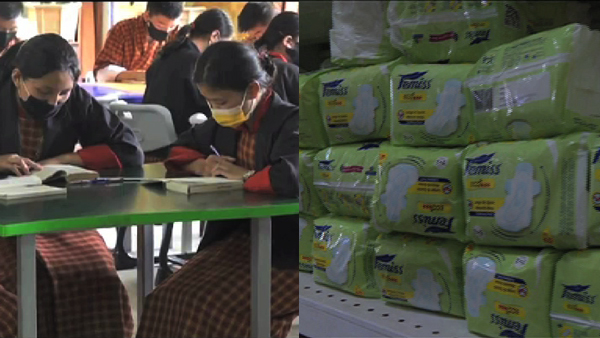 From rugs to sanitary pads, tampons and menstrual cups, women’s menstrual hygiene has come a long way. Women and girls in the country now have better access to hygienic products. Nonetheless, there is still a section of women and girls in rural areas for whom access to these products is still a challenge.
From rugs to sanitary pads, tampons and menstrual cups, women’s menstrual hygiene has come a long way. Women and girls in the country now have better access to hygienic products. Nonetheless, there is still a section of women and girls in rural areas for whom access to these products is still a challenge.
54-year-old Kinley Gyem from Lunana used clothes instead of sanitary pads almost all her life. It was only in 2013 that she first started using sanitary pads.
“I started menstruating at the age of 15. And during those times, we did not use anything. We only started using sanitary pads when the government introduced them. In the past, it was difficult to maintain menstrual hygiene with the use of clothes especially in front of our family members. But now with the availability of sanitary pads, it has become easier. We can maintain hygiene,” said Kinley.
Similar is the story of 46-year-old Ngawang Lham, also from Lunana. She said access to sanitary pads during her days is unheard of.
However, things are improving for women and girls. According to a 2018 report on menstrual hygiene management of adolescent school girls and nuns, every nine out of ten school girls used sanitary pads. This indicates that women and girls have good knowledge of menstrual hygiene.
“With support from the health ministry and hospitals here, we have been able to maintain hygiene during menstruation. For me, I make sure I change my sanitary pads two to three times a day. But when it’s heavy, we have to change it three to four times a day. We also make sure we take a shower during menstruation,” said Tashi Palden in Monggar.
“Personally what I do during menstruation is I make sure that I change my sanitary pad within four to six hours. After using the sanitary pads, I make sure that I dispose of them in a safe place. And one thing I am practising is I make sure that I stick to the method of sanitation,” added Damcho Zangmo in Samtse.
“We wash our body properly and change our sanitary pads on time and we avoid using soaps in our genital areas. We also dispose of used sanitary pads properly,” said Jigme Zangmo from Zhemgang Central School.
Managing period or maintaining menstrual hygiene is still a challenge for women and schoolgirls in remote communities. For example, for women like Kinley Gyem and Ngawang in Lunana, with the nearest shop some ten walking days away, access to sanitary pads is still difficult.
“Because we are remotely located, we don’t have easy access to pads. We don’t have shops selling pads and when we ask others to buy for us, except for our husbands, the rests are hesitant to bring it for us,” said Kinley Gyem.
“The problem is accessibility. When it is not available, we use clothes. When we have access to sanitary napkins then we make sure to change it every two to three times a day,” added Ngawang Lham.
And Priyasha Gurung in Samtse says environment also plays an equal role to maintain menstrual hyeigine. “When we were in school we don’t get enough breaks in between classes so we tend to use the same sanitary pad for a long duration and that is not healthy. So we should be given breaks to change and maintain hygiene. And the second thing is especially in working environment, it becomes uncomfortable to say that we are going through that. So we are not able to voice out that properly. Sometimes in emergencies, we do not get the products to maintain hygiene,” she said.
Meanwhile, according to Karma Wangchuk, the Chief of School Health and Nutrition Division, school going girls have been reached amid the pandemic for easy access to sanitary pads. “We have done a lot, especially with the recent COVID-19 pandemic. In 2020, we did whatever we could. And with the support of the government and donors, we could distribute sanitary napkins to 20 districts and four thromdes. Especially we are targeting boarding girls because it has been little difficult for them to access sanitary napkins in the far-flung schools,” he said.
Menstrual hygiene may start with sanitary pads but it doesn’t end with it. Access to proper toilets, equipped with soap and water, and facilities for safe disposal are equally important.
According to health experts, if menstrual hygiene is not maintained, it will increase the risk of reproductive and urinary tract infection, which can lead to fertility issues later in life.
https://www.facebook.com/watch/?v=318860076283361
Phub Gyem/Sonam Pem










